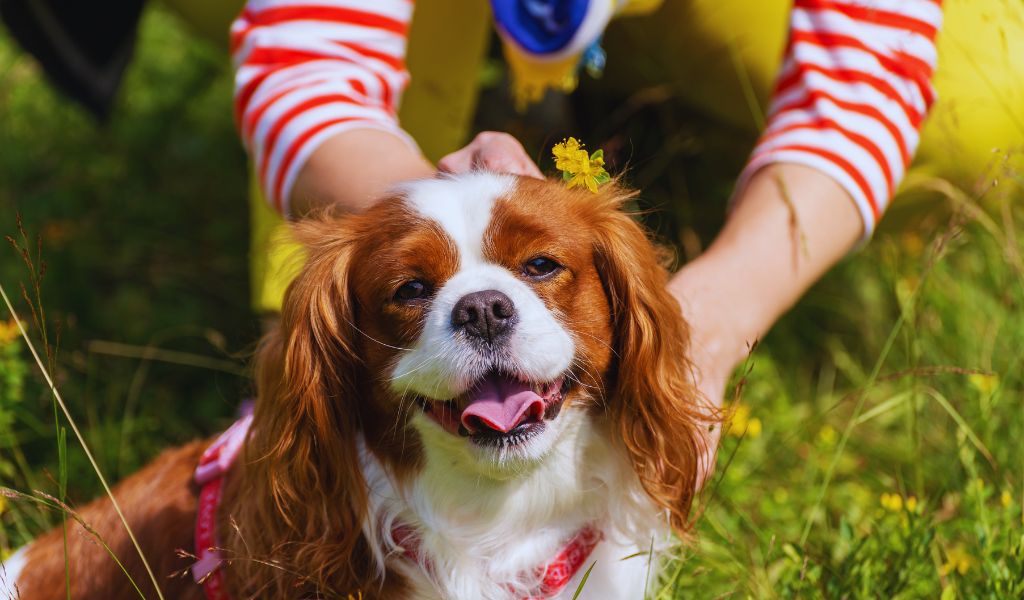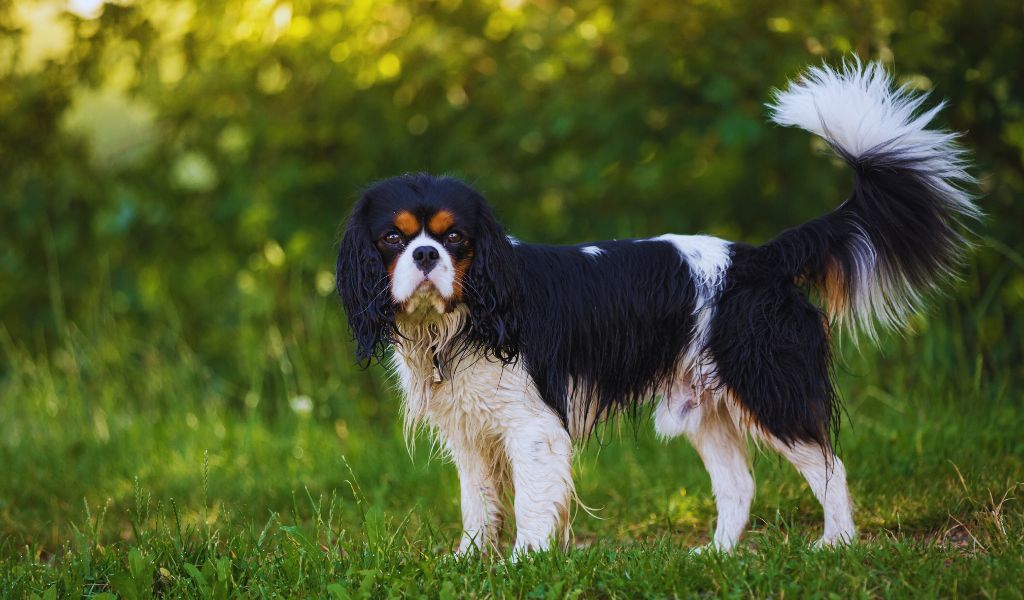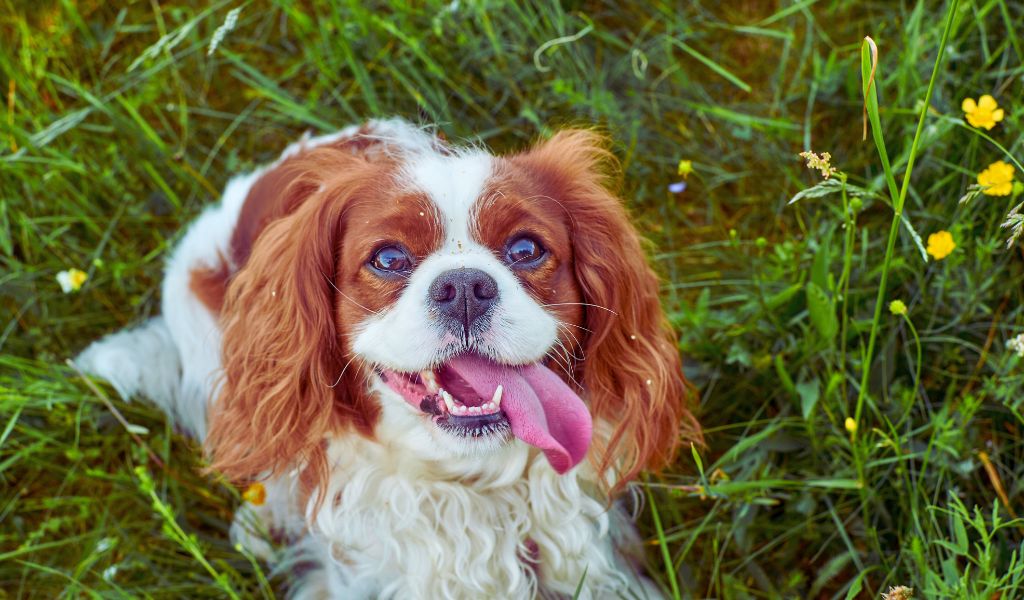Cavalier King Charles spaniels, with their endearing eyes and silky coats, have captured the hearts of many.
But as a potential or current owner, you might wonder about their territorial tendencies.
Let’s dive into what makes these charming canines tick and whether they fit the bill as territorial pets.
Key Takeaways
- Cavalier King Charles Spaniels are not typically territorial.
- Their personality leans towards friendliness and sociability.
- They are not excessive barkers and use barking mainly for communication.
- Situations like sharing a bed can potentially lead to territorial behaviour.
- Training and upbringing can influence their territorial tendencies.

The natural disposition of King Charles Cavaliers
When you bring a Cavalier King Charles Spaniel into your home, expect a bundle of joy rather than a fierce guardian.
Their temperament is far from the territorial end of the spectrum.
They are more likely to greet strangers and other dogs with a wagging tail than a snarl. But how does this translate into their daily behaviour?

Are they guard dogs?
Using a Cavalier King Charles Spaniel as a guard dog might not be the wisest choice.
Their friendly and outgoing nature doesn’t align with the typical territorial or protective traits of a guard dog.
Barking habits: Communication over territorialism
While some dogs bark to assert their territory, Cavalier King Charles Spaniels bark more for communication.
They alert their owners to needs or potential threats rather than barking due to territorial instincts.
Playing over patrolling
Their playful and outgoing personality reflects in their interactions.
Cavaliers are well-intentioned, preferring to play rather than engage in territorial disputes with other animals.
When might King Charles Cavaliers show territorial behaviour?
While generally not territorial, certain situations or upbringing styles can bring out protective instincts in Cavaliers.
Sleeping arrangements and territoriality
Allowing a young Cavalier King Charles Spaniel to sleep in your bed might foster a sense of territory over that space.
This can lead to protective behaviour, especially when strangers enter this perceived territory.
Training and upbringing matter
The way you raise and train your Cavalier King Charles spaniel can influence their behaviour.
Consistent, positive reinforcement training can prevent the development of any unwanted territorial tendencies.

Cavalier King Charles Spaniels are charming, friendly, and sociable dogs that are generally not territorial. Their temperament is inclined towards making friends rather than marking territories. However, remember that individual experiences and training can shape their behaviour.
FAQs
Are Cavalier King Charles spaniels good with children?
Yes, their friendly and gentle nature makes them great companions for children.
Do they require a lot of exercise?
They enjoy regular walks and playtime but don’t need excessive exercise.
Q: How do I train my Cavalier King Charles spaniel not to be territorial?
Use positive reinforcement and consistent training to encourage friendly behaviour.




